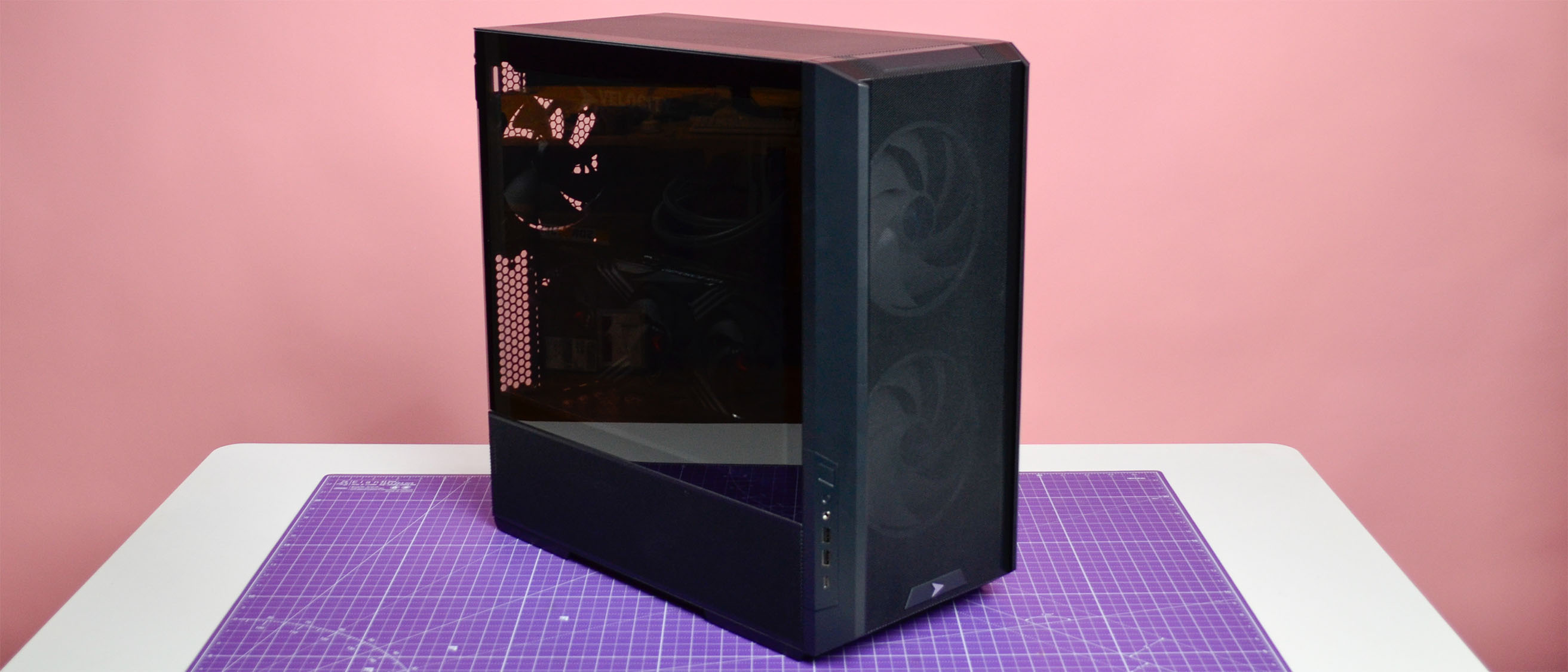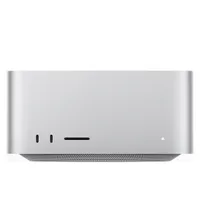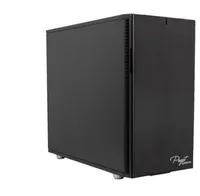TechRadar Verdict
The Velocity Micro Raptor Z95 is a highly customizable PC for professionals, gamers, or both, who want a serious system custom-tuned by pros who know what they're doing. Just be prepared to pay the premium to get you in the door.
Pros
- +
Incredible customization options
- +
Great airflow
- +
Starting price isn't terrible for a custom PC
Cons
- -
Gets very expensive pretty fast
- -
No Threadripper or Ada options
Why you can trust TechRadar
Velocity Micro Raptor Z95: Two-minute review
The Velocity Micro Raptor Z95 is the well-respected custom-builder's gaming PC model that is effectively a budget workstation in disguise, offering the latest premium components in the consumer market with options for professional optimizations and other frills thrown in for good measure. Want a T-shirt showing how much you love Velocity Micro, they'll throw one in, free of charge.
Not only that, they'll extensively custom test the stability of the system they've built before they send it out as well as perform advanced tuning on your machine at no extra charge so you can have your video card and processor professionally overclocked so that you'll get the best performance from your system without running the risk of fiddling with the BIOS on your own and find you can't boot back into your PC and you don't know why.
If you have no idea what I'm talking about, don't worry, I hope you never do. As TechRadar's Components Editor, I've spent an uncountable number of hours staring at a PC test bench praying to the digital spirits to please just let me boot into Windows after installing a new RAM kit I'm reviewing. The a black monitor display staring back at me like the essence of the void itself. Believe me, you don't want to go through that kind of frustration as a several-thousand-dollar PC simply refuse to work because you changed one setting in the BIOS and you have no idea how to fix it.
That is what custom builders like Velocity Micro, Maingear, Puget Systems, and Maingear are here for, and they let you actually build the system you want or need without having to worry that you're going to invest several thousands of dollars into a PC build that won't turn on when you push the power button.
Of course, this doesn't come cheap, and the Velocity Micro Raptor Z95 can get very expensive as you add-in additional components, but the the Raptor Z95 isn't outrageous as far as custom builds go, starting at $2,509 (about £2,000/AU$3,500) and topping out just shy of $8,000 (about £6,400/AU$11,200).
While this is branded as a gaming PC, the top-line specs on the Raptor Z95 are prosumer workstation-level kit, so if you're a professional user who needs a new PC for running the best 3D modeling software work, or one of the best video editing PCs, this can easily give you what you want without totally wrecking your bank account.
What the Raptor Z95 won't give you though is the best workstation hardware, high-end components like AMD Threadripper processors with half a terabyte of RAM and a couple of Nvidia Ada GPUs. For that, you'll have to look to Velocity Micro's ProMagix line, but if you're just looking for something more robust than what prebuilt OEM PCs have to offer but don't want or need to spend tens of thousands of dollars, than the Velocity Micro Raptor Z95 is a perfect compromise.
Sign up to the TechRadar Pro newsletter to get all the top news, opinion, features and guidance your business needs to succeed!
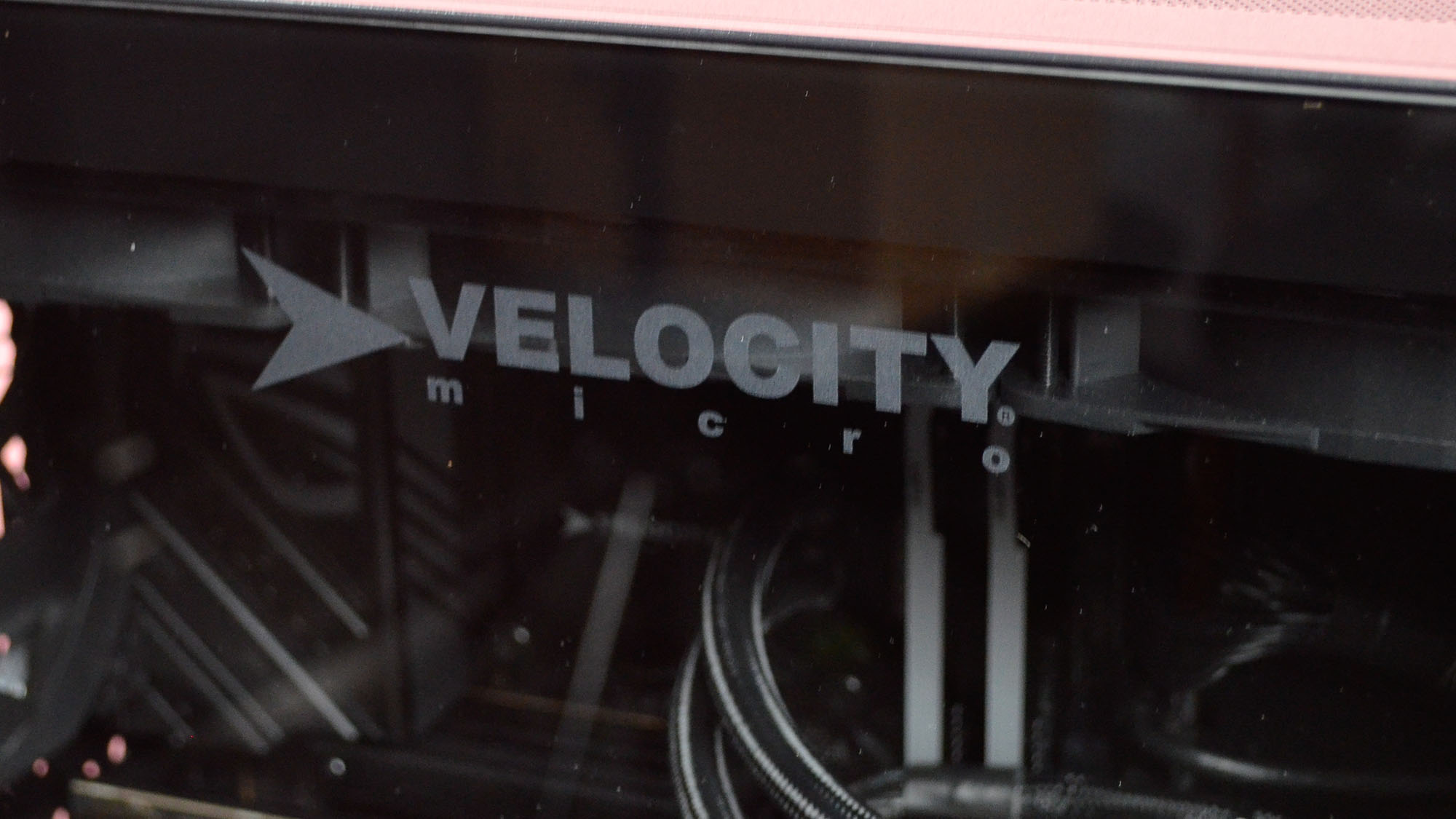
Velocity Micro Raptor Z95: Price & availability
The Velocity Micro Raptor Z95 is available anywhere in the world that UPS can ship to, including the US, UK and Australia, though additional shipping charges will apply to shipments to Hawaii, Alaska, and overseas.
As far as price goes, that will be entirely determined by the build you create, but the lowest possible configuration will cost you $2,509 (about £2,000/AU$3,500), while the most expensive configuration I was able to build was $8,000 (about £6,400/AU$11,200), not including any non-component options like software or custom etchings into the aluminum case. Fortunately, any advancing tuning of the PC you order will be included in the price.
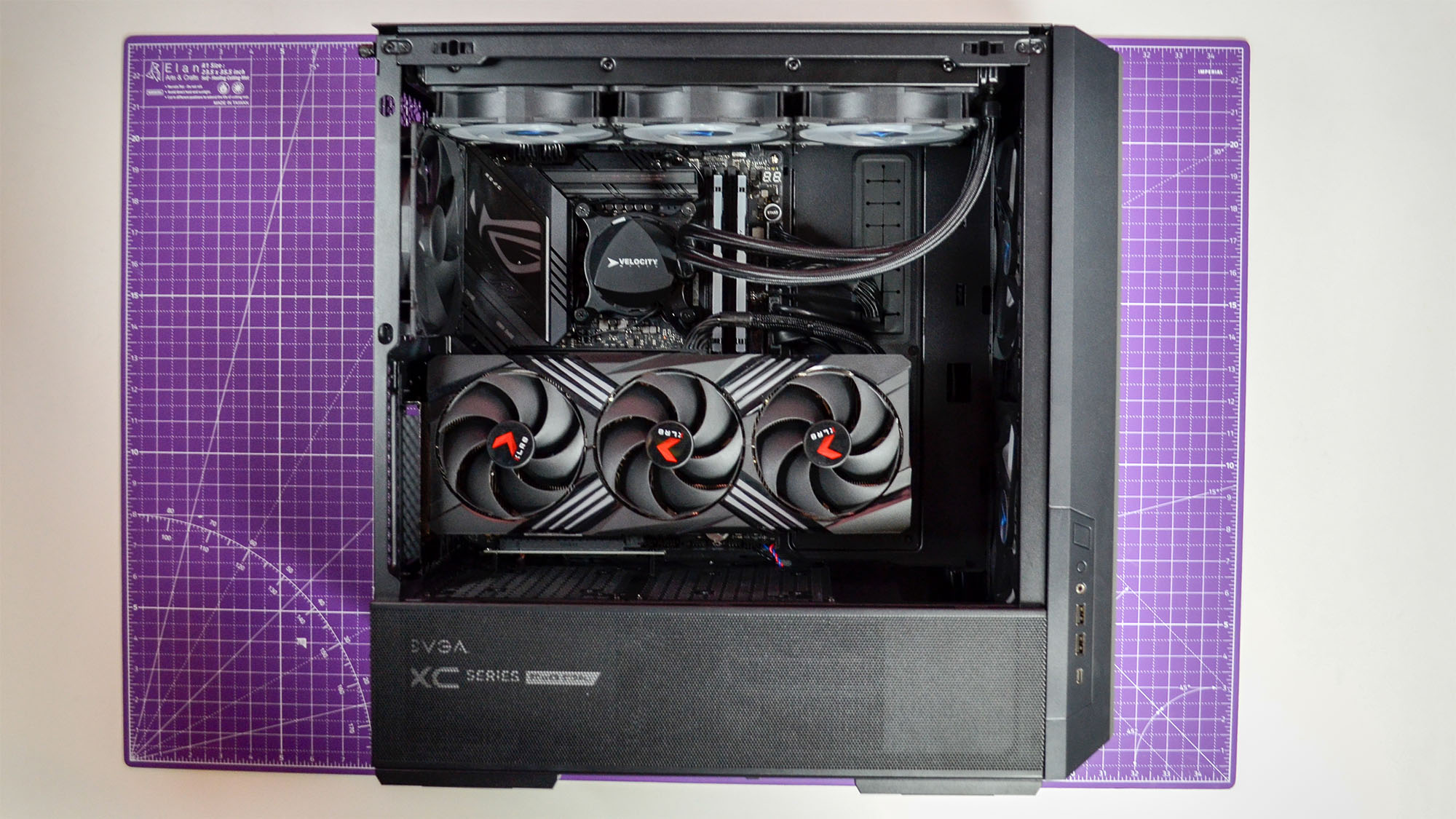
Velocity Micro Raptor Z95: Specs
The configuration options available for the Raptor Z95 are genuinely vast, so it's not useful to list them all here, but you can check out the Raptor Z95 build page and tinker with the configurations to see how much specific builds will cost you.
The system I was sent to review was definitely one of the more high-end builds, but it could have gone higher, especially if you're a content creator and you need a lot of storage.
| Header Cell - Column 0 | Base configuration | Review configuration |
|---|---|---|
| Price | $2,509 (about £2,010/AU$3,510) | $4,499 (about £3,600/AU$6,300) |
| Motherboard | Asus Prime Z790-A | Asus ROG Strix Z790-E II |
| CPU | Intel Core i5-14600K | Intel Core i9-14900K |
| Cooling | Velocity Micro 360mm Liquid CPU Cooler with ARGB fans | Velocity Micro 360mm Liquid CPU Cooler with ARGB fans |
| GPU | Nvidia RTX 4060 | Nvidia RTX 4080 |
| Memory | 32GB DDR5-5200 | 64GB DDR5-6000 RAM |
| Storage | 500GB Crucial P3 Plus | 2TB Crucial T700 PCIe 5.0 |
| PSU | 750W EVGA SuperNOVA 80Plus Bronze | 1000W EVGA SuperNOVA 80Plus Gold |
| Case | SX3 ATX Velocity Micro Classic Chassis with Advanced Airflow | SX3 ATX Velocity Micro Classic Chassis with Advanced Airflow |
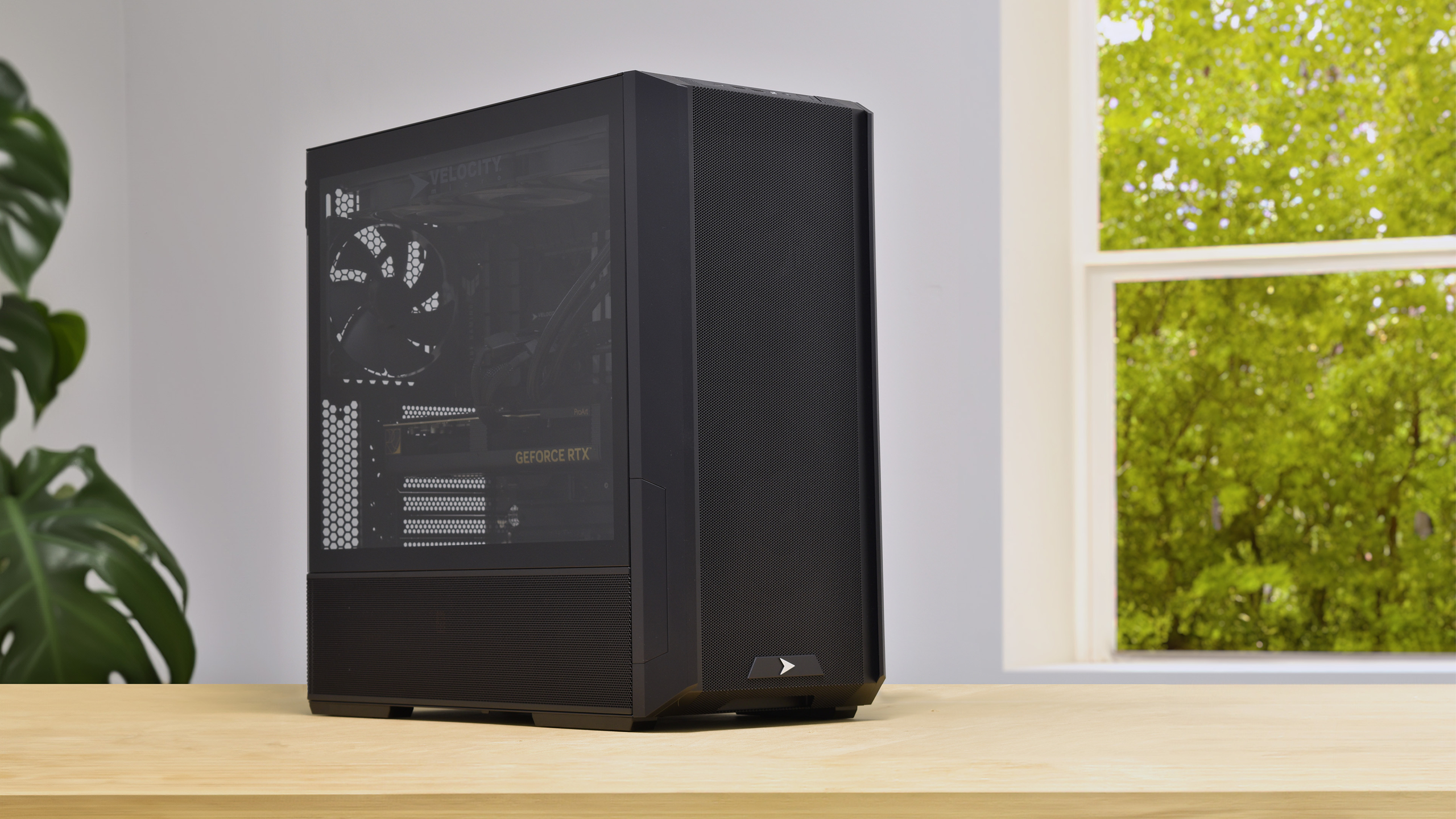
Velocity Micro Raptor Z95: Design
There is only one PC case available for the Raptor Z95, and it is a fairly standard affair with a tempered glass panel showing off the interior and all the very expensive components you just paid for.
The Velocity Micro SX3 chassis has two huge 180mm fans behind the mesh of the front panel, ensuring adequate airflow for cooling your components. The system is also well planned in terms of cable management so that there are no noticeable stray cables poking out to disrupt either the PC's aesthetics or its air flow.
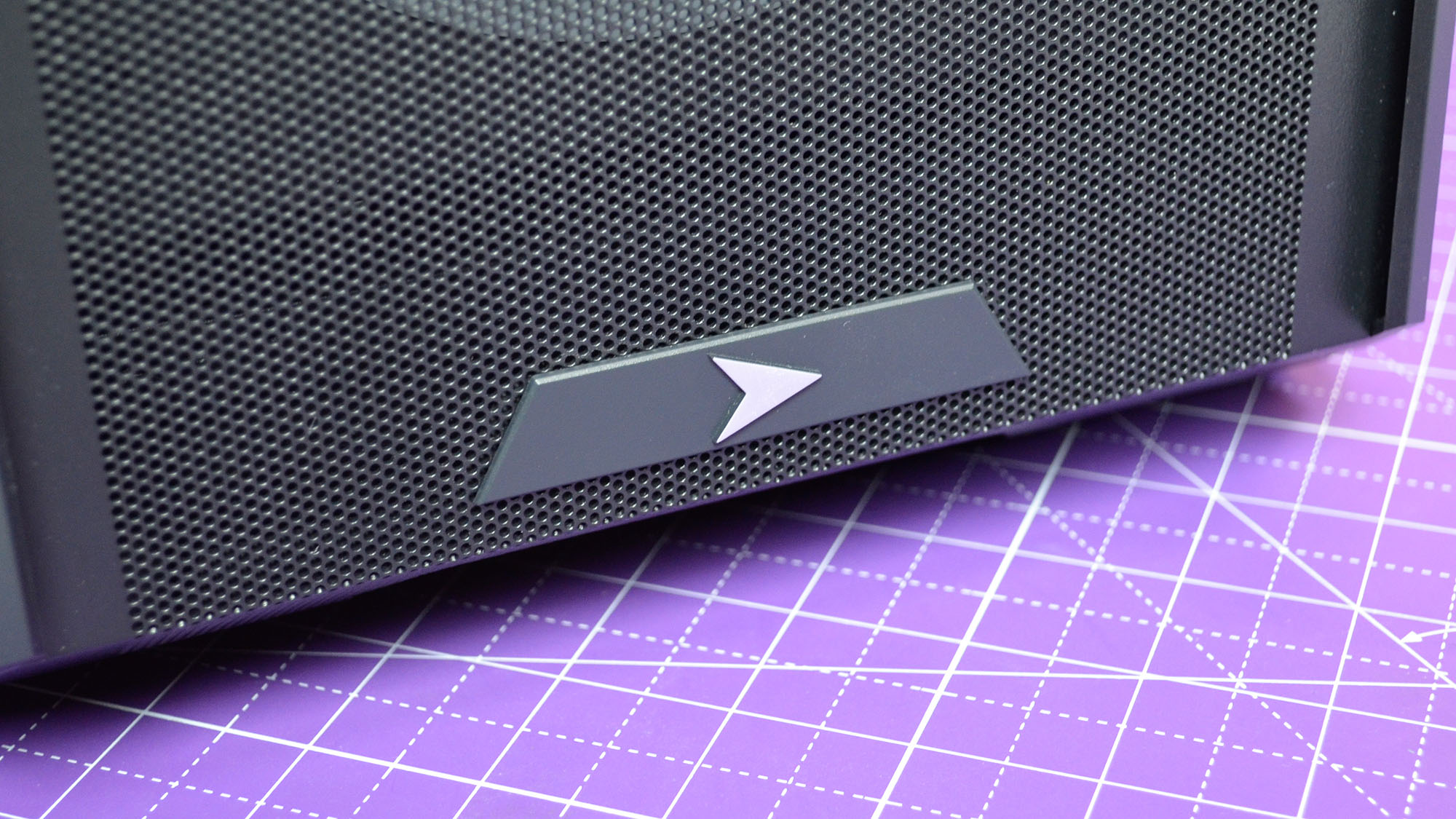
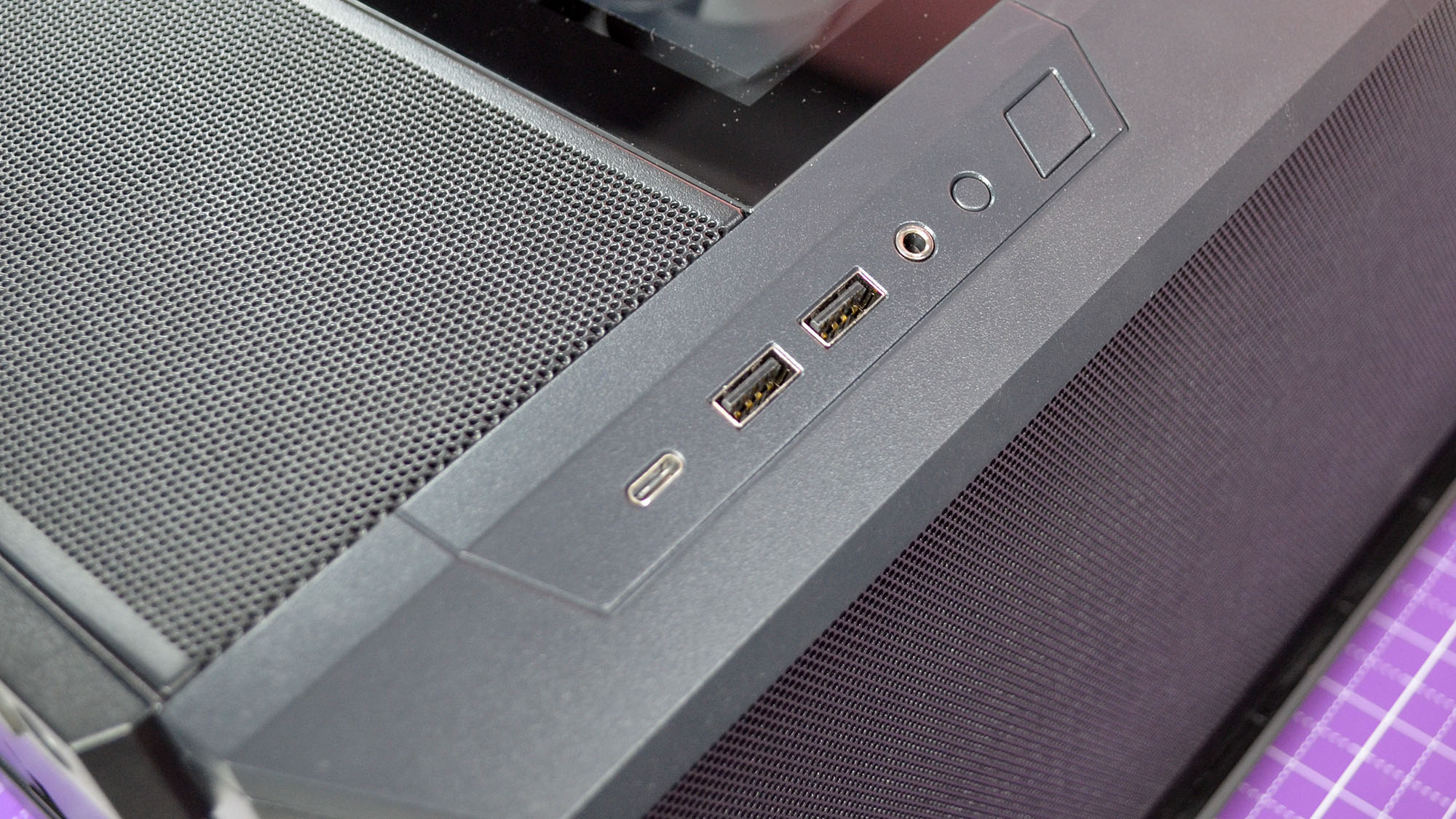
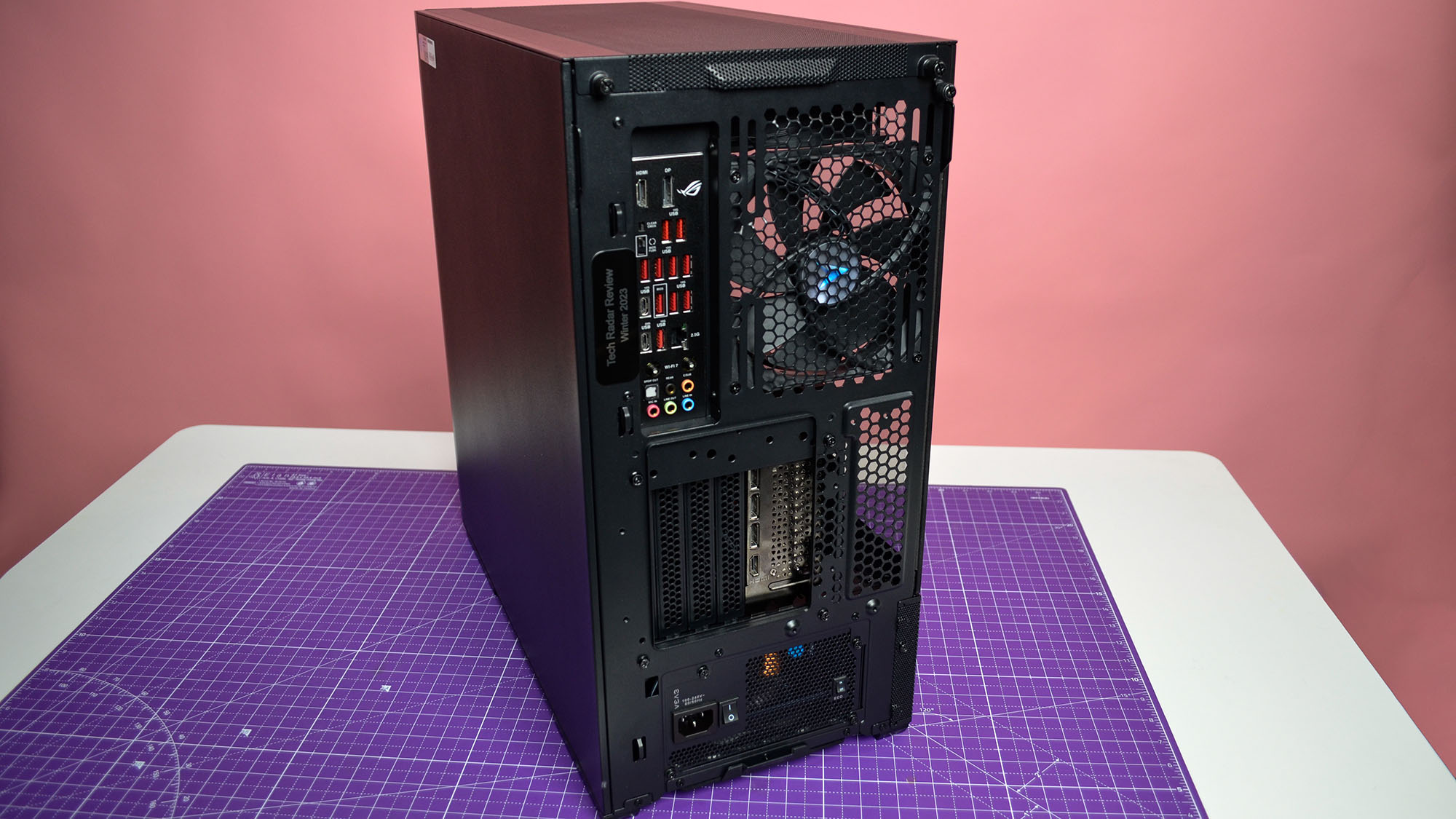
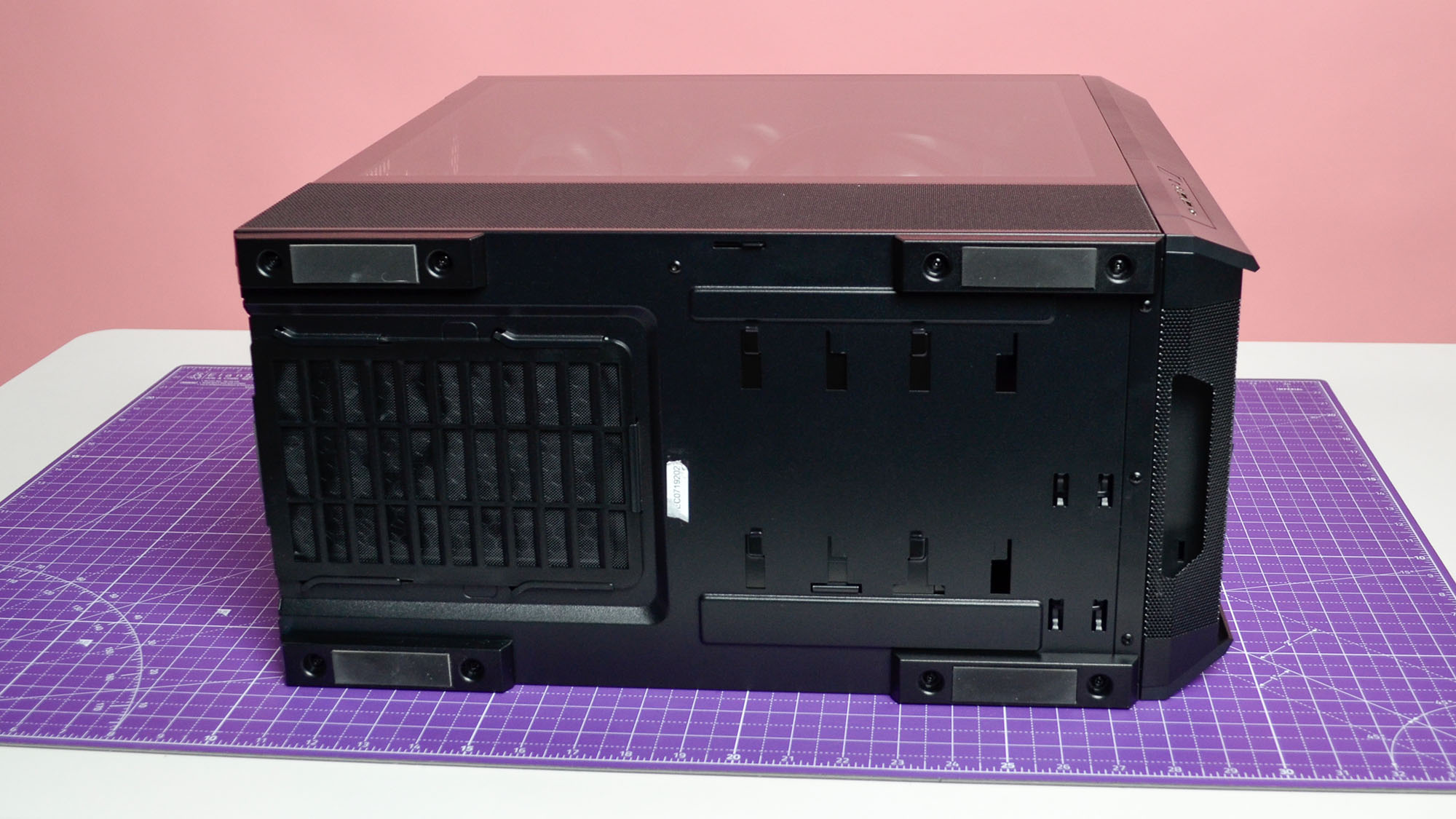
On the front panel's I/O ports, located along the corner trim of the case, make accessing the ports and power button a snap whether the case is sitting on the floor or a desk. Meanwhile, the back of the case reveals support for vertical graphics card mounting so you can show off that $2,000 graphics card you opted for when you configured the machine.
Otherwise, the design of the Raptor Z95 is a good mix of the bare aesthetics of a Dell Inspiron with the heart of a gaming rig, complete with RGB interior sported by many of the best gaming PCs out there.
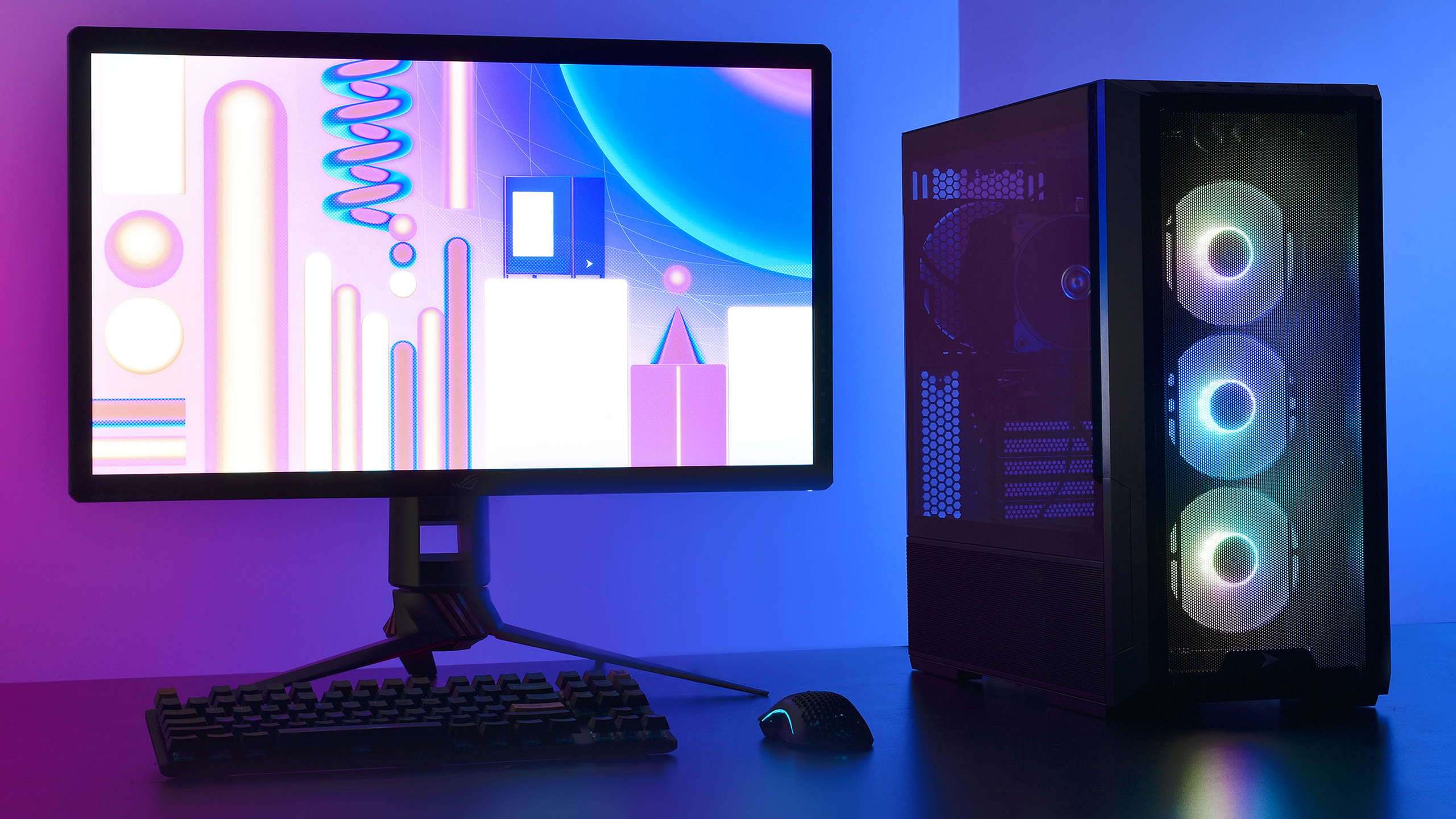
Velocity Micro Raptor Z95: Performance
Performance on the Raptor Z95 is obviously going to depend very heavily on what specs you configure it with, so talking about the raw performance of my particular review unit may or may not be helpful if you're considering the Raptor Z95, but we can dig into the numbers anyway.
| Header Cell - Column 0 | Score | |
|---|---|---|
| Cinebench R23 Multi | 39,563 | |
| PCMark 10 | 10,250 | |
| CrossMark Overall | 2,574 | |
| Crossmark Productivity | 2,349 | |
| Crossmark Responsiveness | 2,309 | |
| Passmark Overall | 18,339 | |
| Passmark CPU | 65,784 |
The CPU peformance is as good as it gets without making the leap to AMD Threadrippers, Intel Xeons, or Apple M-series Ultra chips. In every test, the Intel Core i9-14900K scored at or very near the top of reported results, which isn't surprising since it's the best processor you can find on the consumer market right now.
| Header Cell - Column 0 | Score |
|---|---|
| Passmark 2D | 1,520 |
| Passmark 3D | 34,133 |
| 3DMark Speed Way | 7,292 |
| 3DMark Solar Bay | 139,466 |
| 3DMark Night Raid | 102,385 |
| 3DMark Fire Strike | 44,420 |
| 3DMark Time Spy | 27,085 |
The Nvidia RTX 4080 GPU in my review unit is also a powerhouse component that will chew through both gaming and creative workloads better than just about any other GPU out there not called the Nvidia RTX 4090 or Nvidia RTX 4080 Super.
| Header Cell - Column 0 | Score | |
|---|---|---|
| Crossmark Creativity | 2,924 | |
| Blender Monster 4.0.0 | 4,514 | |
| Blender Junkshop 4.0.0 | 2,109 | |
| Blender Classroom 4.0.0 | 2,216 | |
| V-Ray CUDA | 4,678 | |
| V-Ray 6 RTX | 6,733 | |
| Handbrake 1.6 CPU 4K to 1080p encoding FPS | 223 | |
| PugetBench for Photoshop | 10,050 | |
| PugetBench for Premiere | 13,783 |
Both the CPU and GPU performance really shines when it comes to creative workloads, the kinds of applications that the Raptor Z95 is built for in all but name. Whether it's working with Blender or Maya, or doing video editing with Adobe Premiere Pro, your workflow is going to be about as smooth as you're going to get without spending tens of thousands of dollars, making the Raptor Z95 one of the best video editing PCs and best PCs for photo editing going.
| Header Cell - Column 0 | Score | |
|---|---|---|
| Passmark Memory | 4,290 | |
| Passmark Disk | 80,870 | |
| CrystalDiskMark 8 Sequential Read | 12,276.2 | |
| CrystalDiskMark 8 Sequential Write | 11,389.3 | |
| CrystalDiskMark 8 Random Read | 788.2 | |
| CrystalDiskMark 8 Random Write | 599.8 |
You also have the option of loading up on memory and storage, include super fast PCIe 5.0 SSDs like the Crucial T700. Your memory options max out at 64GB in the builder app, but Velocity Micro says that if you want some custom memory configurations, they can help you get it done (so long as the motherboard and processors support it, obviously).
Of course, this is only a snapshot of the kinds of performance you can get with the Velocity Micro Raptor Z95, and opting for lighter specs will naturally mean lower performance. But in my time with the Velocity Micro, I never had any issues with stability or random crashes as can often happen when dealing with custom PCs, and even if you opt for lower specs, you can probably expect to get the most out of that hardware thanks to the fine tuning that goes into the PC build before the desktop leaves the factory.
Should you buy the Velocity Micro Raptor Z95?
Buy the Velocity Micro Raptor Z95 if...
You want a cheap creative workstation
Given the hardware on offer when customizing the Raptor Z95, you can build a very respectable workstation PC out of what is ostensibly a 'gaming' PC.
You want to ensure stability of a custom build
Custom builds can be an absolute nightmare to manage, especially if you don't build PCs very often. In this case, it's better to just let the experts do the frustrating work for you.
Don't buy it if...
You're looking for a 'budget' system
While the Raptor Z95 starts out with some budget-friendly hardware, paying $2,500 for an RTX 4060 system with an Intel i5 processor is a bit ridiculous. You're better off bying an OEM prebuilt unit for cheaper.
You need industrial-grade workstation hardware
There are no Threadripper or Nvidia Ada options on the Raptor Z95, so if that's what you need, this isn't the PC for you.
Also consider
If my Velocity Micro Raptor Z95 review has you considering other options, here are two more custom PCs to consider.
Apple Mac Studio
Apple's new Prosumer workstation desktop is essential hardware for several industries, especially if you're hoping to use Apple-exclusive workstation apps, though you don't have nearly as many customization options.
Read the full Apple Mac Studio review
Puget Systems custom workstations
Puget Systems is another custom builder in the US that can expertly build and tune a workstation PC that perfectly suits your exact need, though like Velocity Micro, its workstations do come at a premium as a result.
Read the full Puget Systems workstation review
- First reviewed February 2024

John (He/Him) is the Components Editor here at TechRadar and he is also a programmer, gamer, activist, and Brooklyn College alum currently living in Brooklyn, NY.
Named by the CTA as a CES 2020 Media Trailblazer for his science and technology reporting, John specializes in all areas of computer science, including industry news, hardware reviews, PC gaming, as well as general science writing and the social impact of the tech industry.
You can find him online on Bluesky @johnloeffler.bsky.social
